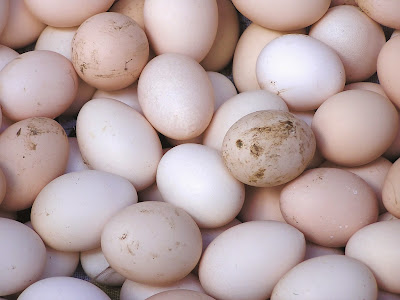Keeping chickens, ducks, geese, and turkeys can be a
lot of fun, educational for kids, and offer tasty and nutritious eggs or poultry
meat. While many people enjoy the benefits of backyard birds, there is a risk
of illness, especially for children. Safe handling of live poultry and of anything from where they roam is key for reducing the risk.
Salmonella
Salmonella
is a germ that poultry and many other animals have naturally within their
intestines. It usually does not make the birds sick, but it can cause serious
illness in people. The Salmonella germs are in the birds’ droppings and they
wind up on the birds’ bodies. The germs also spread throughout the coops,
cages, feed and water dishes, on plants, on the soil, and just about anywhere
the birds have access to.
People get sick from Salmonella when the germs get
into their mouths. This usually happens when the germs get on hands and then
people eat food or touch their faces. Young children are more likely to put their
fingers and other items into their mouths and their immune systems are still
developing, so their risk of illness is higher.
Salmonella can make people sick with diarrhea,
vomiting, fever, and abdominal cramps. If you experience these symptoms,
contact your healthcare provider. In some cases, Salmonella leads to
hospitalizations. The illness is likely to be more serious in children under
five years old, the elderly, people with weak immune systems, and pregnant
women. Salmonella is usually treated with antibiotics.
How to
reduce risk of Salmonella from backyard flocks
- Wash hands thoroughly with soap and water immediately after touching live poultry. Adults should supervise hand washing of young children.
- Wash hands after removing soiled clothes and shoes.
- Clean poultry keeping equipment outside of the house.
- Have a pair of boots or shoes designated for working in your live poultry area and do not wear them in the house.
- Don’t eat or drink in the area where birds love or roam.
- Try not to let children younger than five years old, the elderly, or people with weak immune systems handle live poultry. If they do, have them take extra care to wash up well.
- Assume that wherever your flock roams is contaminated and take the necessary precautions.
- Cook eggs thoroughly.

Enjoy our feathered friends and all of their benefits, but remember to take the proper health and safety precautions!



No comments:
Post a Comment